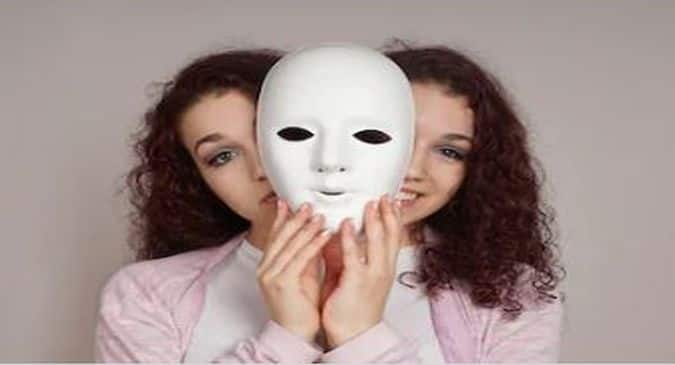Here are some important things to know about Bipolar Disorder.
These days, the media is flooded with the appearance and statements of actor Karan Mehra and his wife Nisha Rawal. With different accusations and allegations on each other, Nisha Rawal called a press conference on Tuesday to take her stand and revealed her side of the story! When Karan said that Nisha is Bipolar and he can’t tolerate it anymore, Nisha accepted it in front of the media.
“Bipolar is a mood disorder which happens due to extreme trauma and it’s genetic sometimes. I was diagnosed with bipolarity and I am not going to lie about it as I am not ashamed about it. But I am not a psycho, it is a mood disorder. And you all know how balanced I am. I create content for the web, I make videos and write about things. I don’t have to prove anything,” said Nisha. She also added that she got diagnosed with bipolarity after suffering a miscarriage with 5 months pregnancy in 2014. The miscarriage strongly hit her emotionally and she claimed that Karan didn’t support her at that time when she needed someone to talk to.

It’s a celebrity Nisha Rawal’s case which recently got revealed but, there are a lot more people suffering from bipolar disorder that hardly anyone knows. Here, we have covered all the nitty-gritty of Bipolar Disorder including Types, Symptoms, and Treatment.
What is bipolar disorder?
It’s a mental illness also called manic depression that brings severe mood swings via which a person sometimes feels overly happy and sometimes overly sad, depressed and sluggish. In between these two mood periods, a person feels and behaves normally. These overly happy and overly sad are the two poles of a mood; that’s why it is called bipolar disorder.
Types: There are different types of bipolar disorder such as Bipolar I Disorder, Bipolar II Disorder and Cyclothymic Disorder.
Bipolar I & II Disorder: In type 1 disorder, a person has extreme erratic behaviour with manic periods of both “up” and “down” moods that last at least a week or two. He needs medical aids, therapies and counselling to bring him under control and to make situations manageable. Whereas, with Bipolar II Disorder, a person faces the same highs and lows but doesn’t require any medical help.
Cyclothymic Disorder: This disorder is worsening in itself as it involves both the periods of manic with extreme depressive behaviour. It can be found in any age group; however, it lasts for a year in teens and children and two years in adults. Its symptoms aren’t as intense as type I & II but disturb a person for longer durations.
Symptoms: The episode of high and low moods don’t have a set pattern and varies from person to person. A person with high manic feel Excessive Happiness with Hopefulness, Hostile, Restlessness, Rapid Speech, Poor Concentration, High on Sex Drive, More Energetic with Less Sleep, Low Appetite.
On the other hand, a person with a low manic feel Excessive Sadness with Hopelessness, Energy Loss, Speaks Slowly, Troubling Concentration, Forgetfulness, Low on Sex Drive, Insomnia, Drowsy & Sleepy, Uncontrollable Crying, Changing Appetite, Suicidal Thoughts, Weight Consciousness either to lose more or gain more.
Treatment: Bipolar disorder can be treated in different ways with some long-term conditions and ongoing care such as Medication, Psychotherapy, Lifestyle Changes and Family Therapy which plays a key role in all the treatments, aiding a sufferer with emotional and moral support.
Medication: This is the most important treatment which usually involves mood stabilizers and drugs like carbamazepine (Tegretol), valproate (Depakote), cariprazine (Vraylar), lurasidone (Latuda), and quetiapine (Seroquel), Antidepressants, Anti-anxiety medications or sometimes sleeping pills.

The medications sometimes take time to get the right fit matching the disorder therefore, it is highly suggested not to try anything on your own or without your doctor’s consultations. Changing or stopping any medication can cause adverse or reverse effects. Additionally, lactating or pregnant women should be more precautionary in such cases.
Psychotherapy: Besides medication Psychotherapy also called “talk therapy” should be considered as it helps in a speedy recovery and boost the power of medication via a positive mindset and willpower of getting things done rightly. The talk therapy session majorly includes Interpersonal Therapy, Cognitive Behavioural Therapy and Psychoeducation with one major common base of concentrating on daily routine and lifestyle.
In the most severe cases when such talk therapy doesn’t go well then, a person is required to take Electroconvulsive Therapy (ECT) and Acupuncture as well. In ECT, a small dose of electric shock is given to the brain to reboot it with no side effects and risks. Whereas, in Acupuncture, some sets of needles are inserted in the body or brain with the same purpose to reboot it and make it relaxed.
Last but not the least, Lifestyle Changes which don’t cost anything just a proper timetable to maintain a balance between the waking and sleeping hours. It fundamentally concentrates on daily exercise and physical activities, right food eating and drinking habits, hobbies and passion etc.
Bipolar Disorder is not a taboo or a disease it’s just a disorder in lifestyle which can be cured and controlled if treated right. Medications and Therapies have their own importance and play a crucial role in curing a person but family and friends support are the topmost. Without a person’s moral support, no treatment can work effectively including ECT and Acupuncture.













